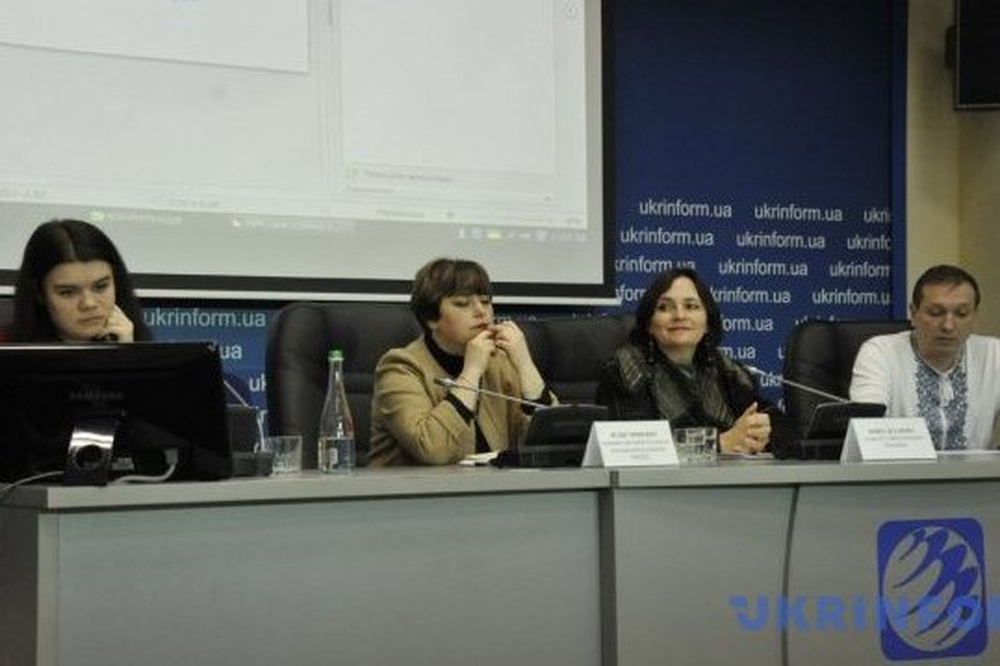News

The admission without passing the Independent external evaluation: a simplified procedure for entrants from Crimea
March 26, 2018, 8:47 p.m.Entrants from the temporarily occupied peninsula can enter higher educational institutions and vocational schools of Ukraine through the "Crimea-Ukraine" Educational Centers (EC) WITHOUT a passport and certificate as well as without passing the Independent external evaluation (IEE).
During the round-table discussion at the National News Agency of Ukraine “Ukrinform”, head of the Open Policy Foundation Iryna Zhdanova told about the educational opportunities for the Crimeans and the barriers they could face.
“Due to the simplified procedure of admission to higher educational institutions and vocational schools, youth from the temporarily occupied peninsula have the opportunity to get nationally recognized documents on secondary education and obtain higher education or vocational education for free,” - said the head of the Open Policy Foundation.
“In order to become a student of the Ukrainian university, the Crimeans must choose an Educational Center at the university, apply to this Center, fill the educational declaration, and pass the examinations in the form of the State final examination (not the Independent external evaluation) on the Ukrainian language and history, and one professional exam. During the admission process, personal data of the entrants from Crimea is encrypted”, - emphasized Iryna Zhdanova.
Last year, according to the Ministry of Education and Science of Ukraine (MoES), 204 entrants entered the higher and vocational educational institutions under the simplified procedure through the “Crimea-Ukraine” Educational
Centers (for comparison, in 2016 – 153 entrants).
The exact dates of the work of the “Crimea-Ukraine” EC will be announced in April. Approximately, they will work from June 4 to September 28. The recent news is constantly published on the websites of Available education and MoES. It is very important that the website Available education contains free video lessons on the Ukrainian language and literature, history of Ukraine, mathematics, and other subjects that do not require registration.
If the entrants want to become students of any higher educational institution in Ukraine, they can use the ordinary procedure of admission through passing the Independent external evaluation. To do this, they need to study on distance/external learning programmes at schools in the Government-controlled areas (GCA) and obtain the nationally recognized documents on secondary education, pass the IEE, and enter any university in Ukraine and the world.
However, according to Iryna Zhdanova, there are still many barriers in obtaining Ukrainian education by the residents of Crimea.
“There are informational, material, and psychological barriers, as well as restrictions on the teaching of Ukrainian subjects in general educational institutions in Crimea. In recent years, the number of schools and students, who study at Crimean schools in Ukrainian or Crimean Tatar languages, has significantly decreased. In 2014-2015, there were 10 200 schoolchildren (5,3%) and now this number is only 371 schoolchildren (0,2%). This is less in 27 times. The same situation is with the Crimean Tatar language. Earlier, 15 200 schoolchildren (8%) studied in Crimean Tatar language, now the number of these children is 5 300 (3%),”- noted the head of the NGO.
Nevertheless, today there are many young people from the Non-government controlled areas (NGCA), who chose to study in Ukraine despite the existing barriers. Successful stories of youth from Crimea that entered Ukrainian universities are available at the link.
The “Hotline” on educational questions of the Open Policy Foundation works for young people from eastern Ukraine and Crimea all year long. “In 2017, the “Hotline” received three times more calls from Crimea and eastern Ukraine. It confirms that there is the demand for Ukrainian education. In my opinion, education is an effective instrument for building the peace and reintegrating the occupied territories, as well as preventing extremism and terrorism. In contrast to militarization of education in schools in the NGCA, we offer education for peace and happy future. Crimea is Ukraine!" - summed up Iryna Zhdanova.
0 800 504 425 – FREE!
Mobile numbers:
+38 068-951-25-13,
+38 050-550-54-11.
(Viber/Telegram/WhatsApp/Skype: DostupnaOsvitaUA)
on working days from 9:00 to 18:00.
“It is strongly important to talk about the illegality of the elections in Crimea” - Yulia Tyshchenko, the head of the program of support for democratic processes of the Ukrainian Center for Independent Political Research.
For Russia, the issue of the annexation of Crimea is a national heritage: Crimea is Putin's main achievement of his previous presidency. “Elections in Russia are the elections without any choice, and there are many doubts about their legitimacy in Crimea. Almost 1,5 million voters live on the illegally occupied peninsula, whose votes will be added to the general number of voter turnout in the Russian Federation. Many international institutions, countries, and EU leaders recognized the elections in Crimea as illegal,” - said Yulia Tyshchenko.
According to her, it is important for Putin to ensure the voter turnout in Crimea and demonstrate the loyalty of residents of Crimea. “The activists already talk about administrative resources and pressure. It is important for Russia to create a picture of the appearance to the election in the areas with high concentrations of Crimean Tatars, indigenous people of Crimea, whose representative bodies have always condemned the occupation. However, for technological purposes, the picture will be distorted. There are no observers in Crimea, although Russia declares their presence by attracting fake observers within their managed pseudo-national diplomacy. It is of high importance to talk about the illegality of the elections in Crimea,” - summed up the head of the program of support for democratic processes of the Ukrainian Center for Independent Political Research.
